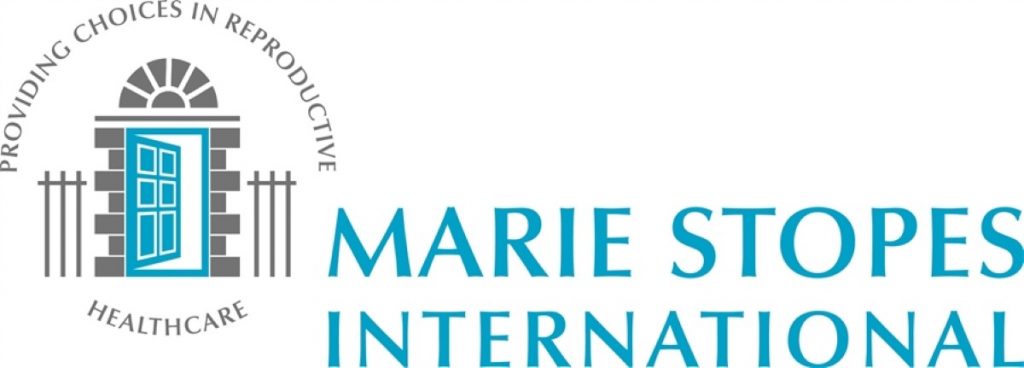Marie Stopes: Advertising unplanned pregnancy services is supported by eight out of 10 British adults
Marie Stopes International reveals new research findings into attitudes towards sexual health advertising, as potential revisions to the rules governing broadcast advertising are considered.
More than three quarters of British adults (76%) agree that adverts about unplanned pregnancy advice services should be allowed to be shown on television, according to new independent research conducted by YouGov Plc. The research is launched today by sexual health charity Marie Stopes International, as the Broadcast Committee of Advertising Practice’s (BCAP’s) review of rules regulating the content and scheduling of broadcast advertisements nears its conclusion following a public consultation. An announcement regarding the consultation result is expected in the near future. The launch of the research also coincides with: news reports that the Government could soon call on television producers and writers to better highlight the importance of practicing safe sex, and to reference the potential consequences of unsafe sex, within television programmes; and the publication of the 2008 (provisional) teenage pregnancy statistics.
The current code restricts the television advertising of some pregnancy advisory services. However, the need for advertising that informs women of the services available to them is highlighted by a finding in YouGov’s survey, where one in four respondents (25%) admitted that other than their GP, they would not know where to go for specialist advice if they or their partner faced an unplanned pregnancy. Nearly half of the respondents (49%) said that if they were faced with an unplanned pregnancy, they would find a sensitively produced advert explaining where to go for advice and services helpful.
“We are encouraged by the resounding public support for unplanned pregnancy advice advertisements on television. In our experience as a leading provider of family planning services in the UK and in over 40 countries worldwide, we know that women facing unplanned pregnancy do not always know where to go to access information and support. This can leave them feeling confused, scared and isolated,” commented Dana Hovig, Marie Stopes International’s CEO. “We are therefore hopeful that the BCAP will soon announce changes to the current advertising rules, to permit adverts providing women and men with clarity on how to access supportive services in relation to unplanned pregnancy.”
The BCAP advertising code review is also considering whether condoms should be advertised on TV before the 9pm watershed, within restrictions. The new research revealed that the majority of respondents agree that family planning and sexual health services should be allowed to be advertised on television providing that they are not broadcast during programmes directly targeting children:
– More than three quarters of respondents (76%) agree that adverts about condoms should be allowed;
– Eight out of ten respondents (80%) agree that adverts about contraceptive advice services should be allowed, and three quarters of respondents (75%) agree that adverts about contraceptive methods other than condoms should be allowed;
– The vast majority of respondents (80%) agree that adverts about sexually transmitted infection (STI) testing and advice services should be allowed.
Half of respondents (52%) also agree that if condoms were advertised on TV at an earlier time when popular programmes for teenagers are broadcast (e.g. during the Channel Four series Hollyoaks) this would encourage more young people to practice safer sex.
Continues Hovig; “Advertising of condoms and sexual health services will equip young people with the knowledge and information to be able to protect themselves against sexually transmitted infections and unintended pregnancy, and may contribute to lowering the UK’s rates of teenage pregnancy and sexually transmitted infections as part of a concerted strategy.”
If permitted, any such adverts will be strictly governed by the new advertising code of practice, ensuring that adverts are legal, accurate and appropriate. “Such adverts will not encourage promiscuity amongst young people,” concludes Hovig. “Young people are already bombarded with sexual imagery via the TV, internet, music and computer games. Sexual health advertisements providing educational, medically accurate, factual information about access to condoms and pregnancy advisory services will not sexualise or mislead young people.”
Ends
For further information and spokesperson please contact the Marie Stopes International press office:
Emily James, Deputy Manager UK Press and Public Affairs:
+44 (0) 207 034 2307 / +44 (0) 7815 009 257
emily.james@mariestopes.org.uk
Tony Kerridge, Senior Communications Manager:
+44 (0) 207 034 2365 / +44 (0) 7748 948 037
tony.kerridge@mariestopes.org.uk
Notes to editors
Marie Stopes International (MSI) is a specialist organisation providing expert and confidential care and support to men and women of all ages in relation to their sexual and reproductive healthcare, including unplanned pregnancy advice and services and contraceptive provision. For further information visit www.mariestopes.org.uk
All figures, unless otherwise stated, are from YouGov Plc. Total sample size was 2096 adults. Fieldwork was undertaken between 9th – 11th February 2010. The survey was carried out online. The figures have been weighted and are representative of all UK adults (aged 18+).
For further information on the advertising rules consultation, please visit the committee of advertising practice: www.cap.org.uk
The publication of the Annual Conceptions to Women aged under 18, England and Wales – 2008 (provisional) is scheduled for release on 24 February 2010. For further information please visit UK National Statistics: http://www.statistics.gov.uk/hub/index.html





-01.png)